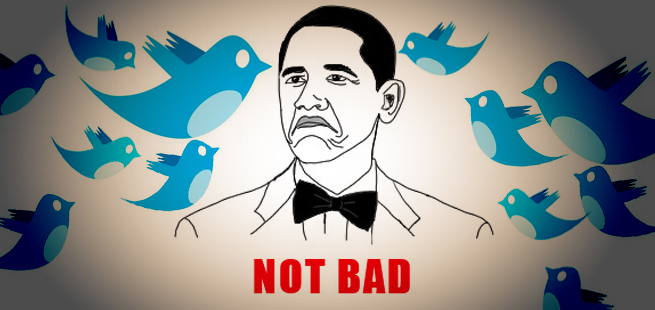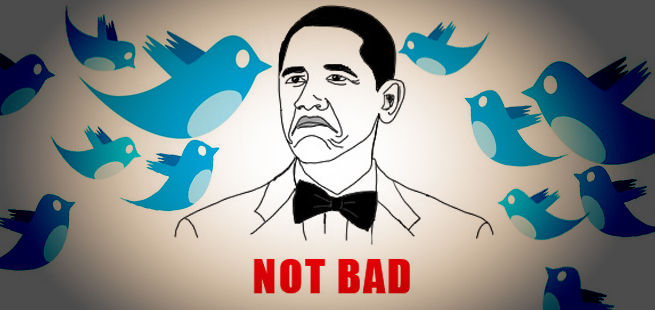
Ah, we love the smell of a patent lawsuit in the morning around here. It’s something between week-old garbage and the unmistakable stench of attorney ego.
But patent lawsuits are often based on nothing more than greed and can end up hurting consumers in the long run. That’s why it’s so interesting that Twitter has made a public pact to not use its patents for evil.
In an announcement this morning, the company states, “We will not use the patents from employees’ inventions in offensive litigation without their permission.”
The implicit criticism in that statement is leveled at Yahoo, which has done exactly that: Used employee patents, which it originally said it would use only defensively, in an offensive attack on Facebook.
Patent lawsuits generally begin with one company — usually a patent troll or a tech megalith with a treasure trove of patents in the tens of thousands range — suing another over some relatively trivial (in the average consumer’s mind) piece of minutiae related to design, features, processes, etc. The sued company then almost invariably counter-sues, betting that its own stack of patents contains some similar minutiae it can use to get the first company off its back. In the end, these suits add up to massive attorney’s fees, if nothing else.
Today, Twitter has shared with the world its Innovator’s Patent Agreement (or IPA, not to be confused with the beer type). The IPA states that, at the very least, Twitter will not become the first party in the patent law theatre scenario we outlined above; the company won’t be the first to start a patent lawsuit.
From the Twitter blog:
The IPA is a new way to do patent assignment that keeps control in the hands of engineers and designers. It is a commitment from Twitter to our employees that patents can only be used for defensive purposes. We will not use the patents from employees’ inventions in offensive litigation without their permission. What’s more, this control flows with the patents, so if we sold them to others, they could only use them as the inventor intended.
You see, most of the engineers and inventors we’ve spoken to think of patent lawsuit as a charade of corporate greed that has nothing to do with actual innovation. In fact, we recently heard Vint Cerf, inventor of the Internet, utter the singular phrase, “Shoot the patent lawyer,” continuing to state that he had found litigation to be contrary to the aims of Internet innovators throughout his career.
So Twitter is siding with innovation over corporate greed, and that stance should be applauded. The company did say it would use patents defensively in countersuits; in other words, it won’t start a fight, but it’ll finish one.
Granted, the still-young company’s patent horde is still small enough that it would be unlikely to take any other major tech company to court with any measure of success — not without first, say, buying up a slew of patents from a tech oldster like IBM. To an extent, today’s gesture is largely symbolic. But Twitter is growing fast in global reach and cultural significance. If all the company did today was set a precedent, it’s a good precedent to set.
“This is a significant departure from the current state of affairs in the industry,” writes Twitter engineering VP Adam Messinger on the blog. “With the IPA, employees can be assured that their patents will be used only as a shield rather than as a weapon.”
The IPA will take effect later this year. In the meantime, you can read the whole thing on GitHub.


